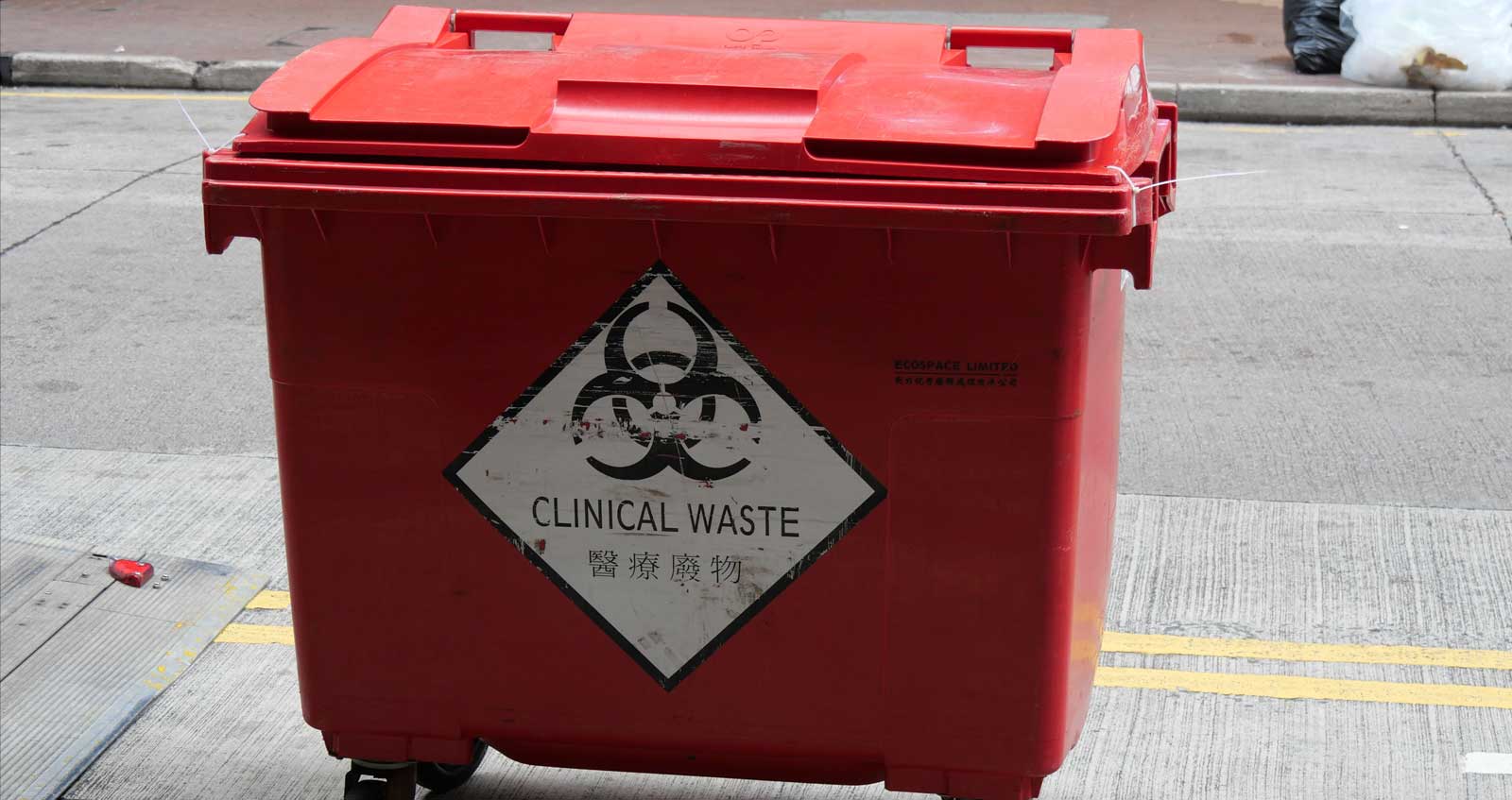Navigating Safety: The Vital Guide to Medical Waste Disposal Finest Practices
Navigating Safety: The Vital Guide to Medical Waste Disposal Finest Practices
Blog Article
Eco-Friendly Garbage Disposal Solutions for a Sustainable Future
In a world where ecological sustainability is extremely important, the administration of waste has emerged as a crucial concern requiring attention and innovation. Eco-friendly garbage disposal options are not mere alternatives however imperatives for a sustainable future. By taking on methods that minimize ecological impact and advertise resource performance, neighborhoods and industries can add substantially to a healthier world. From waste segregation at the resource to power healing from waste, a wide variety of approaches exist to attend to the challenges of waste disposal sensibly. The inquiry remains: which options hold the most assure for achieving a genuinely lasting waste management system?

Waste Segregation at Source
When carrying out waste partition at resource, people can dramatically contribute to more efficient recycling and waste management systems. By dividing various kinds of waste such as paper, plastic, glass, and organic products right from the point of disposal, the process of reusing comes to be streamlined, decreasing contamination and enhancing the value of recyclable materials. This practice not only conserves sources yet additionally decreases the quantity of waste predestined for garbage dumps or incineration.
Appropriate waste segregation at the source is essential for promoting a round economic situation where products are reused, recycled, or composted as opposed to being thrown out as garbage. It likewise helps in the efficient collection and handling of recyclables by waste monitoring centers - medical waste removal near me. Neighborhoods that adopt waste partition at the resource typically experience cost financial savings in waste monitoring and see a reduction in environmental air pollution
Individuals play an important role in the success of waste partition efforts by being mindful of just how they throw away their waste - click here. Education and awareness projects can additionally motivate the adoption of these techniques, causing a much more sustainable and eco-friendly method to squander disposal
Composting and Organic Waste Management
An efficient method for managing natural waste and advertising sustainability is via composting. Composting is an all-natural process that breaks down organic materials like food scraps, backyard waste, and paper right into nutrient-rich dirt amendments. This procedure not just draws away organic waste from land fills but also produces an important product that can enrich dirt, enhance plant growth, and decrease the need for chemical plant foods.

Executing composting programs at the family, community, and community degrees can significantly decrease the quantity of organic waste that winds up in garbage dumps. Educational initiatives on composting best methods and the advantages of natural waste diversion can further motivate prevalent fostering of this environmentally friendly waste monitoring remedy. click here. Inevitably, composting presents a sustainable and useful strategy to managing organic waste while adding to a greener and even more lasting future
Recycling and Upcycling Initiatives
One secret facet of promoting environmentally friendly waste management methods is via the implementation of recycling and upcycling efforts. Reusing involves processing secondhand products into new products to stop waste of possibly valuable sources. This procedure aids in minimizing energy usage, air pollution, and water contamination. Additionally, recycling help in the preservation of resources site here and reduces the need for traditional garbage disposal techniques like landfilling and incineration.
Upcycling, on the other hand, is the creative reuse of thrown out things or products to develop products of better or worth than the original. By upcycling, less waste is sent out to land fills, and the demand for new resources lowers. This sustainable practice advertises technology and urges individuals to view waste as a beneficial source.
Both recycling and upcycling campaigns play a critical duty in promoting a round economic situation and decreasing the environmental influence of waste disposal. click here. By integrating these methods into day-to-day life, people can add to a more lasting future for generations to find
Energy Recuperation From Waste

There are numerous technologies used for energy healing from waste, including incineration, gasification, and anaerobic digestion. Incineration includes shedding waste at high temperature levels to generate vapor, which after that drives generators to create electricity. Gasification converts organic materials right into artificial gas, which can be made use of for electricity generation or as a gas resource. Anaerobic food digestion breaks down natural waste to generate biogas, which can be made use of for warmth or power manufacturing.

Community-Based Waste Decrease Programs
Using neighborhood involvement and involvement is important in applying reliable waste reduction programs that enhance energy recuperation initiatives in lasting waste management methods. Community-based waste decrease programs include joint efforts in between homeowners, regional companies, and authorities to minimize waste generation and enhance reusing rates. These programs commonly consist of educational projects to elevate awareness regarding liable waste disposal methods, the relevance of recycling, and the benefits of minimizing waste.
One usual approach is the establishment of neighborhood recycling facilities where residents can go down off recyclable products comfortably. These centers advertise reusing by making it quickly accessible and offering resources for appropriate waste sorting. In addition, area clean-up events and area recycling drives aid infuse a feeling of ecological responsibility and unity among citizens.
In addition, community-based waste decrease programs can consist of initiatives such as composting workshops, reusable item exchanges, and the promotion of sustainable methods in regional services - medical waste removal service. By including the neighborhood in waste decrease initiatives, these programs develop a feeling of possession and cumulative obligation towards developing a much more sustainable future
Conclusion
In conclusion, executing green garbage disposal remedies such as waste partition, composting, recycling, energy recovery, and community-based programs is crucial for a sustainable future. By adopting these techniques, we can lower the ecological effect of waste generation and promote a circular economy. It is essential that governments, organizations, and individuals work with each other to prioritize lasting waste administration methods to protect our earth for future generations.
From waste segregation at the resource to energy recovery from waste, a myriad of methods exist to deal with the challenges of waste disposal properly. Educational initiatives on composting ideal practices and the advantages of organic waste diversion can better motivate widespread adoption of this eco-friendly waste administration solution.Effectively harnessing power from waste materials is a critical approach in sustainable waste monitoring practices.Taking advantage of community engagement and participation is essential in executing effective waste decrease programs that match energy healing initiatives in sustainable waste monitoring practices.In verdict, executing green waste disposal solutions such as waste segregation, composting, reusing, power recovery, and community-based programs is vital for a lasting future.
Report this page